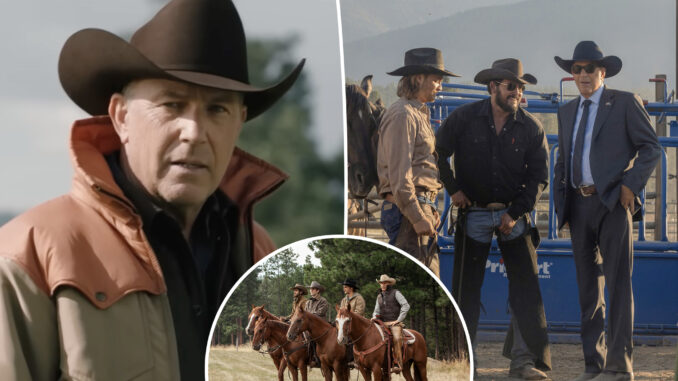
From Ranch to Marshal Badge: The Expanding Canvas of the Duttonverse
The television landscape, much like the sprawling Montana ranches it often portrays, is a dynamic and ever-evolving territory. At its heart lies Yellowstone, a modern Western behemoth that has redefined cable television and birthed an expansive universe. Recent announcements—Luke Grimes, beloved as Kayce Dutton, headlining a new CBS procedural Y Marshals, and CBS's greenlight for yet another Yellowstone cowboy spinoff—are more than just industry headlines; they are illustrative markers of the enduring power of character, the insatiable appetite for authentic storytelling, and the strategic expansion of a cultural phenomenon.
Luke Grimes, for many, is Kayce Dutton. His portrayal of the quiet, tormented youngest Dutton son, torn between the familial loyalty to his ruthless father and his own moral compass, resonated deeply with audiences. Kayce’s journey from troubled veteran to livestock agent, embodying a reluctant protector of the land and his family, was a cornerstone of Yellowstone's emotional core. Grimes brought a brooding intensity and a palpable vulnerability to the role, making Kayce a compelling figure whose internal conflicts mirrored the external struggles of the Dutton ranch. This quiet charisma, combined with a believable ruggedness, makes his transition to Y Marshals a fascinating and fitting next chapter. While the specifics of Y Marshals are still emerging, the title itself suggests a continuation of the law enforcement thread that Kayce often found himself tangled in. For Grimes, this is an opportunity to shed the iconic chaps of Kayce Dutton and forge a new identity, yet one that shrewdly leverages the established persona of a man of action, conviction, and perhaps, a lingering internal struggle. It's a testament to the magnetic power of his Yellowstone performance that a major network is betting on his ability to anchor a new series, hinting at a character cut from similar cloth – perhaps less tormented, but certainly grounded in a world of justice and rugged integrity.
Meanwhile, the Yellowstone universe itself continues its audacious expansion. Taylor Sheridan, the undisputed architect of this cinematic prairie, operates with an unfettered rein, creating narratives that delve deep into the historical and contemporary fabric of the American West. Beyond the existing prequels 1883 and 1923, which have already demonstrated the rich vein of storytelling available by exploring the Dutton lineage, the greenlight for yet another Yellowstone cowboy spinoff is a clear signal: the audience’s hunger for this specific brand of grit, loyalty, and frontier justice is far from sated. This new spinoff, rumored to delve further into the lives of the ranch hands and the grueling reality of cowboy life, promises to ground the epic sagas in the everyday struggles and triumphs of those who truly work the land. It speaks to a craving for authenticity, for tales of men and women who embody a code of honor and resilience often perceived as lost in modern society. It’s an illustrative move, reinforcing that the Yellowstone brand isn't just about the Dutton family; it's about a broader ethos, a way of life, and the enduring myths of the American West.
Beyond these individual announcements, their combined significance paints a larger picture. They illustrate the potent synergy between a successful actor's breakout role and the continued growth of the franchise that launched him. Grimes’s new show benefits from the residual glow of his Yellowstone fame, drawing in viewers eager to see him in a new capacity. Simultaneously, the new Yellowstone spinoff capitalizes on the deep well of fan loyalty and the proven success of Sheridan’s world-building. It highlights a strategic diversification, ensuring that even as the flagship Yellowstone series eventually concludes, its spirit, its themes, and its characters can continue to evolve and propagate across different networks and formats.
Ultimately, these developments are not merely news items but profound illustrations of television's evolving landscape. They underscore the power of a singular vision, like Taylor Sheridan’s, to create a sprawling narrative tapestry that resonates globally. They demonstrate the career-transforming impact of iconic roles, catapulting actors like Luke Grimes into new leading opportunities. Most importantly, they reveal the enduring appeal of the American West – its rugged beauty, its complex moralities, and the archetypal figures who inhabit it. As Luke Grimes trades his ranch-worn boots for a marshal’s badge and new cowboys ride onto the screen in an ever-expanding universe, the Yellowstone saga continues to prove that some stories, like the land they portray, are simply too vast to be contained.
